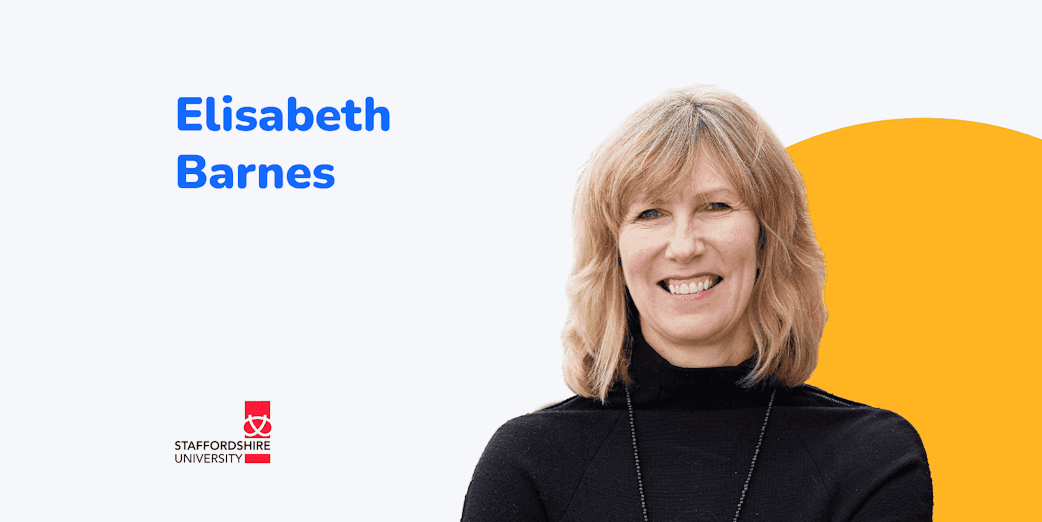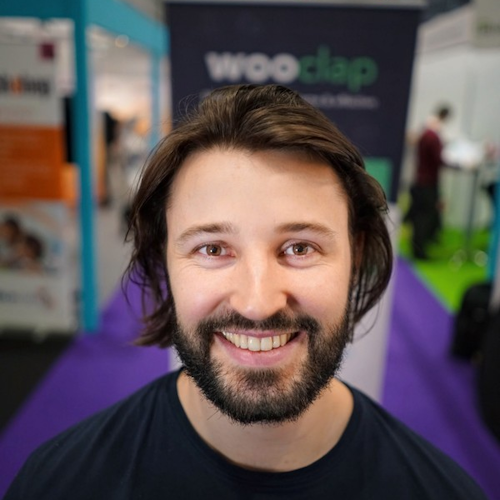
Pedagogical series: your new testimonial series!
Join live sessions featuring real use cases shared by our users.
Using EdTech to improve students’ digital skills
18.02.2021 • 5 minutes

For our woobinar on how to integrate Education Technology at the heart of British and Irish higher education, we were fortunate enough to count Professor Elizabeth Barnes, Vice Chancellor at Staffordshire University, among our panelists.
Professor Barnes emphasised two main objectives of her university’s digital strategy. The first is to tailor and optimise the student experience, for which they have - among other things - developed Beacon, an AI bot to answer student questions.
The second is to create digitally proficient graduates, equipped with the skills they are going to need for lifelong learning, which they can practice through the university’s “digi-tests” every few weeks.
Since time did not allow her to answer all the questions asked by the audience during the woobinar, Professor Barnes wanted to share her answers to the remaining questions here:
How have students responded to your “digital skills” classes?
Professor Elizabeth Barnes (P.E.B.): We have had really good uptake from students across the University. We originally launched ‘Testfest’ with business school students, and computing students have an opportunity to extend their skills and qualifications with Amazon, for example.
We have since rolled this out for all students and we are getting more and more interest from students right across the University (for Amazon the University came 1st out of 110 institutions in the AWS Educate Challenge for students undertaking training and attempting digital certification and badges. Students taking part were spread across departments with the biggest numbers in Computing, Games, and Business).
We also provide a suite of online resources for students that support them with the use of the main platforms they use for their learning. These have been accessed thousands of times and have been important in introducing students to and increasing their skill level with those technologies.
Have you found discrepancies in your students’ digital fluency depending on their faculties/subjects?
(P.E.B.): We have been using blended learning in all departments in the University for some time now, and as in most Universities we have used a virtual learning environment for a number of years. However we have also had projects on using Teams, for example, as our main virtual space for connecting students and staff for at least 2 years, and this was being championed by staff from across the University. Therefore, I don’t think we have faced too many challenges with digital fluency.
The challenges have been in keeping everybody up to speed with the progress that has been made with the technology and the fantastic capabilities that have been developed and applied during this time, and ensuring that all are able to engage. This, of course, at times can depend upon high powered solutions and therefore that has presented other challenges. Where students have had computer platform or Internet connectivity issues, the university has made available equipment to solve these.
We provide students access to induction resources to support their access of the core digital platforms they’ll be using – by engaging with them, we’d hope that it creates more of a consistent skill level across the board.
The Bot is brilliant, but do you think it’s still important that there’s a human element to support? A lot of learners still prefer that human interaction.
(P.E.B.): Absolutely, and the examples I shared included the reference to where the bot refers the student to human interaction – for example linking students to their academic mentor, referring students to student support services, supporting students to join societies, etc. What this technology allows us to do is to manage transactional enquiries through the technology whilst freeing staff up to provide personal support to students.
How will you build your connected/agile curriculum?
(P.E.B.): We are doing that now and it will entail many different aspects. Student choice about the blend of modules that they select – our connected curriculum. Timetabling to allow students greater flexibility and choice. Links to industry to ensure that we are providing contemporaneous content and skills that prepare our students for the jobs of tomorrow. A curriculum enabled by technology that provides access to emerging knowledge and skills and supports opportunities to learn, teach and practice highly complex activities and skills.
How do you train staff to embed EdTech into their practice?
(P.E.B.): This needs to be supported through a network of learning communities, encouraging the sharing of practice, and will mainly be driven and developed by the academic communities who are always developing their practice. It is supported by central teams in digital services, education development and pedagogy, and through research to ensure that we can evaluate, develop and embed best practice.
What’s the uptake for the Microsoft Tests? What else do you offer staff in terms of digital development?
(P.E.B.): Staff uptake continues to grow and has become quite competitive. We offer one-to-one support if it is needed and have a team of staff who can provide staff development more broadly. We encourage and support learning and teaching champions to share practice and offer a range of events to develop practice.
We also facilitate opportunities to engage in external initiatives for recognition, such as the Microsoft Innovative Educator Expert scheme, and have recently launched a staff-led pilot programme to coach colleagues towards the submission of an application.
We have seen 1527 exams taken since January 2019, 1092 from students and 435 by staff. 265 have been online during the pandemic. These are not just Microsoft Exams, there have been 115 Adobe, 9 Autodesk and 50 Entrepreneurship & Small Business.
If you’d like to see Professor Barnes’ full presentation on integrating EdTech at the heart of higher education, click the play button below. Happy viewing!
Writer

Gauthier Lebbe
Content Editor @Wooclap. I love to write, learn, write about learning, and learn about writing. And hit readers with puns they don't see coming. You know, sucker puns.
Subject
A monthly summary of our product updates and our latest published content, directly in your inbox.



